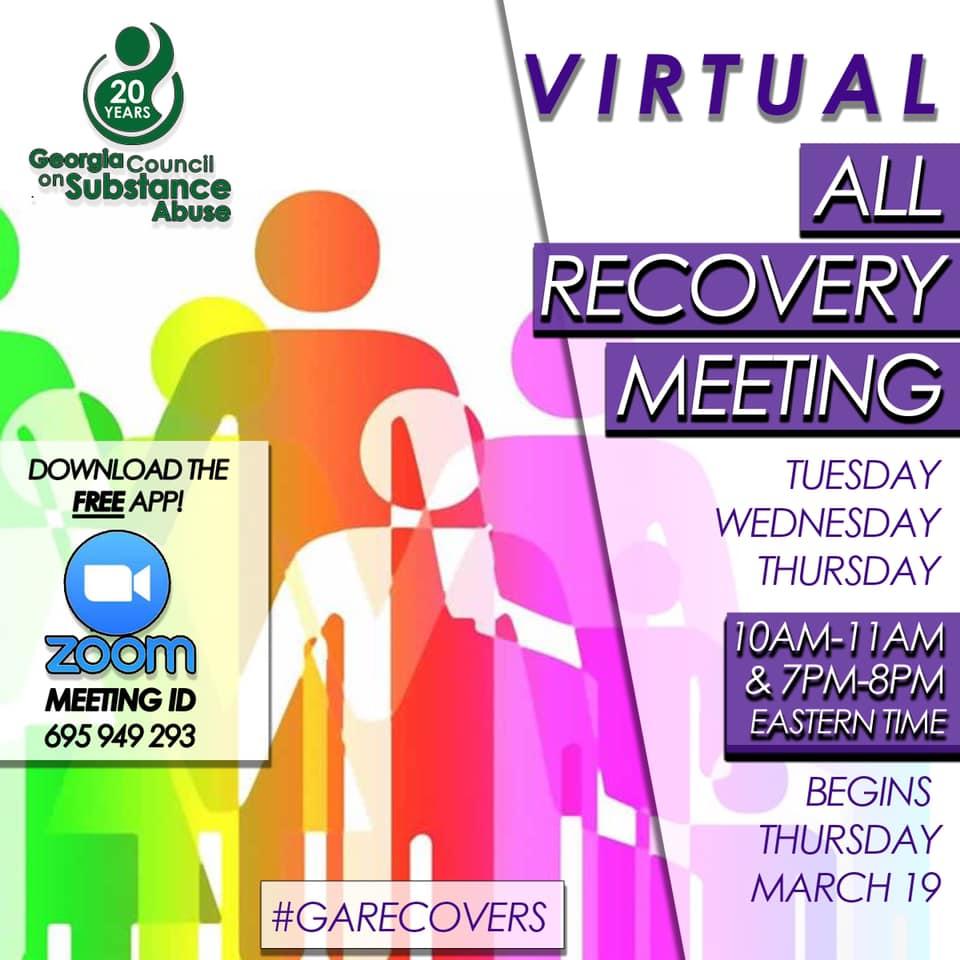Section Branding
Header Content
Social Distancing Means People Who Need People Have A Tough Time Staying Sober
Primary Content
Staying home while sick is exactly what gets addicts into trouble. The illness is addiction, and the cure for many recovering from drug and alcohol addiction is people. They fear what isolation could mean to their sobriety.
Three days after the World Health Organization declared coronavirus a pandemic, Heather Wysocki met up with about 15 friends at the grave of her sons at a Cobb County cemetery.
The mother of three lost two sons to addiction and Wysocki herself has been in and out of recovery rooms for 25 years. When her son, Dustin Hart, overdosed in 2014, she isolated herself.
“I was so devastated and I basically disconnected from everyone," she said. "And about that's when I ended up drinking nine months later on the weekend of his birthday, which would have been May 30.”
MORE: Addiction Recovery Community Reminds Kemp 'We're Everywhere'
She and her 24-year-old son, Austin Hart, sobered up together in 2016. That year was wonderful, Wysocki said, because Austin went through The Extension in Marietta.
David Ragsdale, the HELPLINE coordinator at The Extension, said Tuesday that 12-step meetings are all “closed” now, and access to both the men's and women's campuses and resident populations is restricted. In addition to recovery, he said, 12-step fellowships are largely mutual-aid societies and will continue to be so in the face of coronavirus and social distancing.
Wysocki said her son was really doing well after his time in The Extension four years ago.
"He was just like he had always been when he was a kid," she said. "Just always funny, a jokester. And he had one relapse."
That relapse killed Austin on March 16, 2017, which was his mother's 45th birthday.
The son who found joy again went missing for days in 2017 and was ultimately discovered dead in northwest Atlanta. His death made local television news and devastated Heather.
RELATED: How One Police Department Is Trying To Steer Addicts Into Recovery Instead Of Making Arrests
Her friends in recovery helped her and Heather did not start drinking again.
Laura, who didn’t give her last name, said Saturday, March 14, 2020, she needs in person meetings, too.
The program is a better choice than how she previously lived, and she said fear of getting coronavirus doesn't affect her decision to gather in group meetings.
"Because when I was using, I'd go out and get drugs," Laura said. "I just I think if people just wash your hands and take care of themselves, we'll all be OK."
Experts say the idea behind social distancing is to flatten the curve. That means if members of society can avoid spreading coronavirus by avoiding public places then maybe society can prevent overwhelming our hospitals, especially in rural parts of the state where emergency rooms have closed.
The social distancing advice applies as much to people who rely on group meetings for their substance abuse recovery as it does for anyone else, Georgia Council on Substance Abuse Executive Director Neil Campbell said.
It’s best for people to avoid in-person recovery meetings right now, Campbell said.
"We suggest that people get their get their needs met around their recovery support either online or by telephone," she said. "It really is the time right now to not put yourself in a situation where you could be exposed.
Brett Bramble said though it's been 13 years since he's used a drug, he still has the underlying condition of chronic depression.
"I rely strongly on my connection to my friends and peers," he said. "Not only the connection to them, but the connection to nature. Indoor isolation could lead to a full-blown relapse for me, even this far into my recovery."
Campbell said another consideration people in recovery should remember is that many have chronic health conditions and are at risk for more serious consequences of COVID-19.
"If you need someone to talk with, to listen, or give support, call the CARES Warm Line at 844-326-5400," Campbell said. "Our peer recovery coaches are answering the phones from 8:30 a.m. - 11 p.m., 7 days per week."
While more and more places that host recovery groups are closing the doors, people who need physical connection to others, can use those phone hotlines.
"When you use you are apart from and you are disconnected from everything and everybody," Wysocki said. "And when you're in recovery, you are connected to everyone."
And while you can’t get a hug from the internet, Narcotics Anonymous has virtual meetings as well.


